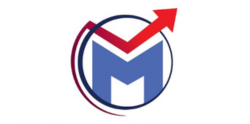The Role of Facebook Ads in Event Marketing
The Role of Facebook Ads in Event Marketing
Events are powerful opportunities for businesses and organizations to connect with their audience, build brand awareness, and drive engagement. Facebook Ads offer robust features that can significantly enhance event marketing efforts, allowing event organizers to reach a targeted audience, boost attendance, and maximize event impact. In this comprehensive guide, we’ll explore how to leverage Facebook Ads effectively for event marketing, from planning and promotion to measuring success.
1. Setting Clear Objectives
Before launching Facebook Ads for your event, it’s crucial to define clear objectives and goals. Common objectives for event marketing include:
- Increasing Attendance: Drive registrations or ticket sales to maximize event participation.
- Building Awareness: Introduce your event to a new audience and generate interest.
- Engaging Attendees: Encourage interaction and engagement before, during, and after the event.
- Generating Leads: Capture attendee information for follow-up and future marketing efforts.
2. Targeting Your Audience
Facebook Ads provide advanced targeting options to reach specific demographics, interests, and behaviors relevant to your event audience:
- Demographic Targeting: Target users based on age, gender, location, and other demographic factors.
- Interest Targeting: Reach users interested in topics related to your event, such as industry trends, hobbies, or relevant organizations.
- Behavioral Targeting: Target users based on their past behaviors on Facebook, such as event RSVPs, purchases, or engagement with similar events.
3. Choosing the Right Ad Format
Selecting the appropriate ad format can enhance engagement and effectively convey your event message:
- Event Response Ads: Use event response ads to promote your event directly on Facebook. Include event details, RSVP options, and a compelling reason to attend.
- Video Ads: Capture attention with engaging video content highlighting event speakers, activities, or past event highlights.
- Carousel Ads: Showcase multiple aspects of your event, such as speakers, sessions, sponsors, or testimonials, within a single ad unit.
- Lead Generation Ads: Collect attendee information directly through Facebook to streamline registration or ticket purchasing processes.
4. Crafting Compelling Ad Content
Effective ad content should be visually appealing, informative, and aligned with your event’s value proposition:
- Eye-Catching Visuals: Use high-quality images or videos that resonate with your target audience and reflect the event’s atmosphere or theme.
- Compelling Copy: Craft clear and concise ad copy that communicates key event details, benefits of attendance, and any special offers or incentives.
- Strong Call-to-Action (CTA): Encourage users to take action, such as “RSVP Now,” “Get Tickets,” or “Learn More,” to drive conversions.
5. Leveraging Retargeting Strategies
Retargeting allows you to reconnect with users who have shown interest in your event but haven’t yet registered or purchased tickets:
- Website Visitors: Install the Facebook Pixel on your event registration page or website. Retarget users who visited but did not complete the registration process.
- Engagement Audiences: Create custom audiences based on users who have interacted with your event page, RSVP’d, or engaged with event-related content on Facebook.
- Lookalike Audiences: Expand your reach by targeting users who share similarities with your existing event attendees or engaged audience.
6. Promoting Event Highlights and Updates
Use Facebook Ads to highlight key event features, speakers, agenda updates, or special announcements:
- Countdown Ads: Create anticipation by running countdown ads to the event start date. Include teasers about what attendees can expect and why they shouldn’t miss out.
- Speaker Spotlights: Showcase speakers or panelists with brief bios, topics they’ll cover, and why their participation adds value to the event.
- Exclusive Content: Offer sneak peeks or exclusive content related to the event to entice potential attendees and keep them engaged.
7. Measuring Success and Optimization
Monitor the performance of your Facebook Ads using Facebook Ads Manager to track key metrics:
- Reach and Impressions: Measure the number of users who saw your ads and how frequently they were displayed.
- Engagement Metrics: Track likes, comments, shares, and event responses to gauge user interaction with your ads and event content.
- Conversion Tracking: Set up conversion tracking to measure registrations, ticket sales, or other desired actions taken as a result of your ads.
8. Budget Management and ROI
Optimize your ad spend by allocating budget effectively and adjusting bids based on ad performance:
- Budget Allocation: Set daily or lifetime budgets for your campaigns to control spending and maximize ROI.
- Performance-Based Optimization: Adjust targeting, ad creative, and bidding strategies based on performance data to improve campaign effectiveness.
- ROI Analysis: Calculate the return on investment (ROI) by comparing the revenue generated from event registrations or ticket sales to the advertising costs incurred.
9. Compliance with Facebook Policies
Ensure that your Facebook Ads comply with Facebook’s advertising policies and guidelines:
- Prohibited Content: Ads must not contain prohibited content, such as deceptive claims, illegal products, or discriminatory practices.
- Image and Text Guidelines: Ad images and text should adhere to Facebook’s guidelines regarding image dimensions, text-to-image ratio, and content restrictions.
Conclusion
Facebook Ads play a pivotal role in event marketing strategies, offering powerful tools to reach a targeted audience, drive engagement, and maximize event attendance and impact. By setting clear objectives, leveraging advanced targeting options, crafting compelling ad content, and measuring performance closely, event organizers can harness the full potential of Facebook Ads to achieve their event marketing goals.
Implementing these best practices will help you create effective Facebook Ads campaigns that drive attendance, engagement, and overall success for your events.
Related Posts
Leave a Reply Cancel reply
Categories
MahbubOsmane.com is reader-supported, some products displayed may earn us a commission if you purchase through our links. MahbubOsmane.com is a participant in the Amazon Services LLC Associates Program. Learn more.

